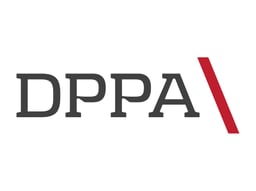Poland, strategically located in the heart of Europe, offers a dynamic and robust environment for business.
The nation boasts a stable economy, a skilled workforce, and a welcoming attitude towards foreign investment. This article delves into the essential aspects of doing business in Poland, from its economic landscape and investment incentives to practical tips for navigating the Polish business environment.
Economic Landscape of Poland
A Growing Economy
Poland has demonstrated impressive economic growth over the past few decades. The country's GDP has been steadily rising, positioning Poland as one of the fastest-growing economies in Europe. This growth is driven by various factors, including a large domestic market, robust export performance, and significant foreign direct investment (FDI). Poland's strategic location also makes it a gateway for accessing both Western and Eastern European markets.
Key Industries
Several industries stand out as particularly strong and promising in Poland:
- Manufacturing: Poland has a well-developed manufacturing sector, particularly in automotive, electronics, and machinery.
- Information Technology: The IT sector is booming, with numerous startups and established companies operating in software development, cybersecurity, and IT services.
- Renewable Energy: Poland is increasingly investing in renewable energy sources, such as wind and solar power, in response to the global shift towards sustainability.
- Logistics and Transportation: Given its central location in Europe, Poland is a critical logistics hub, with a well-developed infrastructure network.
- Food and Agriculture: The country has a rich agricultural tradition and is a significant exporter of food products.
Investment Incentives
Government Support
The Polish government is keen on attracting foreign investment and offers various incentives to facilitate this. These incentives are designed to support new businesses and foster economic growth.
- Special Economic Zones (SEZs): Poland has established numerous SEZs across the country. Businesses operating within these zones benefit from tax exemptions and other financial incentives. The zones are strategically located to maximise logistical advantages and are equipped with modern infrastructure.
- Investment Incentives: Various forms of support are available for foreign investors, including grants, tax reliefs, and subsidies. These incentives are often targeted at specific sectors that the government aims to develop further, such as high-tech industries and renewable energy.
- European Union Funds: Poland, as a member of the European Union, benefits from substantial EU funding. These funds are directed towards infrastructure development, innovation, and regional development, providing additional support for businesses.
Legal and Regulatory Framework
Poland has a transparent and business-friendly legal system. The country has implemented numerous reforms to simplify business operations and enhance the ease of doing business. Key aspects include:
- Company Formation: The process of establishing a company in Poland is straightforward. Investors can choose from various types of business entities, including:
- companies: a limited liability company (in Polish: spółka z ograniczoną odpowiedzialnością) and a joint-stock company (spółka akcyjna);
- partnerships: general partnership (spółka jawna), professional partnership (spółka partnerska), limited partnership (spółka komandytowa), partnership limited by shares (spółka komandytowo-akcyjna);
- civil law partnership (in Polish: spółka cywilna);
- one-person business activity (in Polish: jednoosobowa działalność gospodarcza).
- Taxation: Poland offers competitive corporate tax rates and has signed numerous double taxation treaties with other countries to avoid tax duplication for international businesses.
- Labour Law: The labour market in Poland is flexible, with regulations designed to protect both employers and employees. The workforce is highly skilled, particularly in technical and engineering fields.
Polish Regions: Opportunities and Characteristics
Poland is divided into 16 administrative regions (known as voivodeships), each with its unique economic profile and investment opportunities. Here's an overview of some key regions:
Warsaw (Masovian Voivodeship)
While being the capital, Warsaw is the financial and economic heart of Poland. It is home to many international companies and offers a vibrant business environment with excellent infrastructure and a high-skilled workforce.
Kraków (Lesser Poland Voivodeship)
Kraków is known for its strong position in the IT and technology sector. The city boasts numerous tech parks and innovation hubs, making it an attractive destination for tech startups and established companies alike.
Wrocław (Lower Silesian Voivodeship)
Wrocław is a major industrial and academic centre. It has a thriving manufacturing sector and is home to many universities and research institutions, fostering a strong environment for innovation and development.
Gdańsk (Pomeranian Voivodeship)
Gdańsk, a key port city on the Baltic Sea, is crucial for maritime trade and logistics. The region also has a growing IT sector and offers significant opportunities in shipbuilding and marine industries.
Poznań (Greater Poland Voivodeship)
Poznań is known for its strong industrial base, particularly in automotive and machinery manufacturing. The city is also the venue for many international trade fairs, which increases its business potential.
Practical Tips for Doing Business in Poland
Navigating the Legal and Regulatory Environment
- Business Registration: Registering a business in Poland involves several steps, including obtaining a REGON (business identification number), registering for VAT, and setting up a bank account. Engaging a local legal advisor can simplify this process.
- Employment Regulations: Understanding local employment laws is crucial. This includes knowledge of employment contracts, working hours, and employee rights. Offering competitive salaries and benefits can help attract and retain skilled workers.
State Labour Inspectorate Action Plan for 2024
The Chief Labour Inspector has presented the State Labour Inspectorate’s action plan for 2024. As announced, the State Labour Inspectorate plans to carry out 60,000 inspections this year and will cover at least 35,000 entities with various forms of preventive measures.
During inspections, the Inspectorate will check, among other things, compliance with regulations on remote work and regulations resulting from the implementation of the so-called work-life balance directives. In terms of occupational health and safety, the inspectorate plans to inspect renewable energy industries, heating plants and combined heat and power plants, as well as industries involved in the storage, sale and processing of metal scrap.
More information: HR Newsletter by SK&S law firm, February 2024
Obligation to adapt workstations to new health and safety requirements
In accordance with the November amendment to the Ordinance on occupational health and safety at workplaces equipped with screen monitors, employers have had to adapt workstations to the new requirements before 17 May 2024.
Workstations of employees using laptops for at least half of the daily working hours must be supplemented with a desktop monitor or stand that allows the screen to be positioned so that its top edge is at eye level, and an additional keyboard and mouse.
In addition, at the employee's request, workstations can be equipped with a footrest. The previous obligation to reimburse employees for corrective glasses has been expanded to include reimbursement for contact lenses.
Draft law on extending maternity leave
In mid-April 2024, the Sejm received a bill to amend the Labour Code and certain other laws, according to which it is planned to extend maternity leave by the total duration of the child's hospitalisation after leaving the hospital or other treatment facility by mother, up to a maximum of 24 weeks. The draft stipulates that the right to extend maternity leave will also be transferable to the child's father.
The amendment is intended to allow parents of premature babies an adequate period of care for a child who is hospitalised for the first weeks of life. Currently, the draft is at the consultation stage in the Sejm.
Works on law implementing EU directive on adequate minimum wages
According to press reports, the Ministry of Family, Labour and Social Policy is working on a law implementing the directive on adequate minimum wages. The directive indicates that a minimum wage is considered adequate if it is fair in relation to the distribution of wages in a member state and ensures a decent standard of living for full-time employees. The directive was adopted in 2022, and member states have until 15 November 2024 to implement it.
As announced by the Ministry of Labour and Social Policy, there are plans to change the concept of minimum wage so that it applies only to the basic wage, i.e. salary without bonuses and allowances. Employers must be prepared for many changes in this regard. We are left waiting for the publication of the draft law.
More information: HR Newsletter by SK&S law firm, May 2024
Draft law on collective bargaining agreements and collective agreements
At the end of June 2024, a draft law on collective bargaining and collective agreements has been published on the website of the Government Legislation Centre. The draft law assumes:
- Expansion of the catalogue of matters regulated by collective bargaining agreements;
- Introduction of a specific duration for collective bargaining agreements: (i) 5 years for a company collective bargaining agreement, and (ii) 10 years for a multi-employer collective bargaining agreement;
- Introduction of electronic notification to the National Register of Collective Bargaining Agreements to simplify registration;
- Support for a mediator in the course of negotiating the agreement;
- Introduction of a fine or restriction of liberty for non-compliance with the provisions of the Law, including for failure to comply with information or registration obligations.
As we read on the Council of Ministers' website, the aim of introducing the regulation is to revitalise the negotiations and increase the use of collective agreements, as well as to balance the expectations of trade unions representing employees and employers and their organisations. Adoption of the draft law by the Council of Ministers is planned for the third quarter of 2024.
Determining trade unions headcount
By 10 July 2024, company trade union organisations must have submitted information to employers on the number of their members as of 30 June 2024. Should the employer doubt the number of trade union members, the employer may raise an objection in writing within 30 days from the date the information is submitted.
If the above obligation is not fulfilled, the trade union loses its power to represent employees in terms of both collective and individual interests. This means that if the employer have not obtained the information on the number of members by 10 July, the employer is able to take actions on its own – actions which normally require cooperation with the trade union.
More information: HR Newsletter by SK&S law firm, July 2024
The implementation date of the Law on the Protection of Whistleblowers
The Law on the Protection of Whistleblowers of 14 June 2024 has been published, which means that it will enter into force (with certain exceptions) on 25 September 2024.
The Polish Parliament (Sejm) adopted the Law on the Protection of Whistleblowers, which aims to protect all whistleblowers regardless of the basis and form of their work. The new regulations implement a directive of the European Parliament and the EU Council, which should have been introduced by Poland more than two years ago. The Act is now proceeded through the Senate, after which it will await the President's signature and its publication in the Journal of Laws. The Act will enter into force three months after its promulgation, which could be in the last quarter of 2024.
Who is affected (by implementation of an internal notification procedure): Entrepreneurs with at least 50 employees in gainful employment (irrespective of the basis of employment) will be required to implement a whistleblowing and follow-up procedure (hereafter: ‘internal notification procedure’).
What does it apply to: A breach of the law, under the Act, is an act or omission that is unlawful or intended to circumvent the law relating to, inter alia, labour law, corruption, public procurement, environmental protection, consumer protection, security of information and communication networks and systems, protection of privacy and personal data; and constitutional freedoms and rights of man and citizen.
Capital groups Private entities belonging to a capital group will be able to establish a common procedure for internal reporting, provided that the activities performed comply with the Whistleblower Protection Act.
More information: SK&S Report on the Law on Protection of Whistleblowers, May 2024
- Compliance and Reporting: Ensure compliance with Polish accounting standards and tax regulations. Regularly updating financial records and timely tax filings are essential to avoid legal issues. Tax law in Poland is intricate and frequently changes. To minimise tax risks and avoid disputes, taxpayers should establish internal procedures, including vetting business partners before engaging in transactions. It's crucial for taxpayers to stay updated on legislative changes.
For instance, starting from 1 July 2024, VAT taxpayers in Poland must use the structured invoice system within the National e-Invoice System (KSeF). The above system is mandatory for taxpayers established or having its fixed establishment in Poland in B2B transactions.
- "Active" taxpayers must have implemented KSeF from 1 July 2024;
- "Exempt" taxpayers must implement the National e-Invoice System from 1 January 2025.
What is important, the mere VAT registration in Poland does not create a fixed establishment and therefore does not trigger obligation to implement KSeF.
Rules to apply to issuing structured e-invoices
- The structured e-invoices should document both domestic (Polish) supplies of goods and services, and international transactions (including IC supply of goods, exportation of goods and services).
- Reporting more information compared to standard invoices.
- Necessity to get the access to KSeF:
– using a qualified electronic signature or stamp;
– with the use of a trusted signature (ePUAP);
– using a token generated by KSeF;
– based on the taxpayer notification to use KSeF.
- Obligation to notify the tax office of persons authorised to access KSeF and authorised to access issued invoices.
- In the interim period (until the end of June 2024) the acceptance of the invoice recipient has been required. In case of non-acceptance, the invoice can be sent in an agreed format.
- Invoices prepared in the financial and accounting system and then sent to KSeF through an app interface (facilitation for micro-entrepreneurs using the MF e-Mikrofirma application).
More information: Article on e-Invoices by SK&S law firm, October 2023
Investment Opportunities and Risks
- Emerging Sectors: Identify emerging sectors and niches within the Polish market. Sectors such as renewable energy, IT, and biotechnology offer significant growth potential.
- Market Research: Conduct thorough market research to understand local consumer behaviour, market trends, and competitive landscape. This can help tailor products and services to meet local demands.
- Risk Management: Assess potential risks, including economic fluctuations, regulatory changes, and geopolitical factors. Developing a robust risk management strategy is essential for long-term success.
Future Outlook
Poland's business environment continues to evolve, with ongoing investments in infrastructure, innovation, and sustainable development. The government's commitment to economic growth, combined with the country's strategic location and experienced workforce, positions Poland as an attractive destination for international business.
Trends to Watch
1. Digital Transformation: The acceleration of digital transformation across various sectors presents new opportunities for businesses, particularly in IT, fintech, AI and e-commerce.
Artificial Intelligence in compliance with the law
Our experience shows that clients are increasingly interested in applying solutions based on artificial intelligence (AI) to streamline their work and gain a competitive advantage. However, plans to implement AI are accompanied by concerns regarding legal compliance, especially given that EU regulations that explicitly address the issue of artificial intelligence are not finalised yet.
Currently, there is no universally applicable legislation imposing specific obligations in connection to AI. However, this lack of regulation is not expected to last long. The finalisation of the basic act – the Regulation of the European Parliament and of the Council laying down harmonised rules on artificial intelligence (artificial intelligence act) and amending certain union legislative acts ("AI Act") – is scheduled still for this year. The Commission, the Parliament and the Council are currently negotiating the final wording of the AI Act in the course of a so-called "trilogue". The regulation will primarily impose obligations on providers of AI systems, as well as on entities using AI systems which are under their control.
The most common doubts about AI
Notwithstanding the regulations which specifically concern AI, using AI should also be analysed in light of the regulations which are already in place. The most frequently raised questions concern the following issues:
- determining who is entitled to the rights to AI-generated materials (completions) and determining the rules for using such materials, including identifying consequences of combining such completions with the client’s own solutions;
- determining the entity liable for intellectual property rights violations which are a result of using AI solutions and using completions/materials created by generative AI (e.g. determining which entity is responsible for claims of copyright infringement of entities whose materials were used to train models);
- potential access of the AI system provider to data which is entered into the model, particularly in the course of analysing and filtering content to verify if the system is used properly (e.g. if it is used for a dangerous purpose);
- using client data to further train the models of the provider;
- GDPR compliance, in particular with regard to respecting the rights of data subjects and implementing the requirements related to automated data processing (including profiling), as well as the problem of providing false personal data in the output generated by AI solutions.
Implementing AI is already possible
Despite many valid points regarding the risks of using AI, what is common for new technologies, it should not be assumed, without further analysis, that implementing such systems in an organisation is currently not possible, particularly given the still-ongoing work on the AI Act. The regulations which are in force in Poland do not generally prohibit the use of such solutions. However, it is important to approach this topic thoroughly, including by properly defining the rights and obligations of the user and the AI solution provider, defining the ways in which AI solutions can be used in the organisation as well as adjusting internal procedures. Many entities are already using this technology in their daily work, showing many interesting applications of AI (e.g. efficient document review, performing summaries and analysis of large amounts of text) and how many further benefits it can bring.
More information: Article on AI regulations by SK&S law firm, September 2023
2. Green Economy: Poland's shift towards a green economy, driven by EU regulations and global sustainability goals, opens avenues for investment in renewable energy, green technologies, and sustainable practices.
A tool to achieve the EU's climate and emissions reduction targets. The Industrial Emissions Directive (IED)
On 12 April, the EU Council adopted the revised Industrial Emissions Directive (IED). The revised Directive is another tool to achieve the EU's climate and emissions reduction targets set out in the European Green Deal. The new rules aim to increase the effectiveness of legal mechanisms to reduce emissions and introduce stricter environmental requirements. For plant operators, the revision of the Directive may pose a significant challenge due to the requirement to significantly reduce emissions and the potential costs of retrofitting plants.
Previously, the scope of the Directive covered power plants, refineries, waste treatment plants and large intensive livestock farms. Following the amendments, the scope of the Directive will be extended to include: large-scale battery production facilities, more types of large intensive pig and poultry farms and metal ore mining activities.
The amended Directive provides for a derogation from the requirement for integrated permits and the possibility of including poultry or pig installations in the notification system. Under the new legislation, integrated permits for industrial installations will be issued electronically through an electronic permitting system. The electronic system should be in place by 2035 at the latest.
Large installations operate on the basis of a permit issued by national authorities based on a standard – Best Available Techniques (BAT). The permit defines the allowable polluting emissions from the installation, based on BAT conclusions.
In practice, national authorities have usually set the maximum permissible emission standards as set out in the BAT conclusions. The new legislation introduces a change in this respect and requires national authorities to consider whether the emission level provided by the applicant (usually the maximum possible) could be more stringent. This could lead to a more stringent emission limit value.
The revised Directive also introduces a new concept of environmental performance limit values to be set by the competent authorities in the permit for the construction and operation of the installation. Permits issued before the entry into force of the provisions of the amended Directive will have to be updated within 4 years of the publication of decisions on BAT conclusions published after the entry into force of the amended Directive.
The Directive has not yet been published in the Official Journal of the EU (publication is expected in the near future), the legislation will enter into force on the 20th day after publication. Member States will have 22 months to transpose the provisions into national law.
More information: Article on the Industrial Emissions Directive by SK&S law firm, June 2024
Integration of multiple renewable energy sources (RES) installations at a single connection point (cable pooling)
As of 1 October 2023, the Act of 17 August 2023 amending the Renewable Energy Sources Act and certain other acts (Journal of Laws 2023, item 1762) came into force ("Amendment"). The said Amendment set out the new framework for the cable-pooling that would allow generators to connect several renewable energy sources installations (RES) to the electricity grid at a single connection point with a rated voltage higher than 1 kV.
More information: Article on the Renewable Energy Sources (RES) Act by SK&S law firm, September 2023
3. Infrastructure Development: Continued investment in infrastructure, including transportation, logistics, and telecommunications, will enhance Poland's connectivity and business potential.
In the realm of logistics, Poland's strategic location at the crossroads of major European trade routes has positioned it as a critical hub for warehousing and distribution. Investments in rail freight corridors and multimodal logistics centres are further strengthening its role in international supply chains. The expansion and modernisation of seaports, particularly in Gdańsk and Gdynia, are boosting Poland's capacity to handle increasing volumes of maritime trade. Their role is growing not only in terms of trade and goods transport. The Baltic Region is also becoming an increasingly important gateway for Poland in energy matters.
Telecommunications infrastructure is also seeing robust development, with efforts to expand broadband access and improve digital connectivity. The rollout of 5G networks is expected to enhance technological innovation and support the growth of the digital economy.
Challenges Ahead
- Regulatory Changes: Keeping abreast of regulatory changes at both national and EU levels is crucial for businesses to remain compliant and competitive.
- Economic Volatility: While Poland's economy is robust, businesses must be prepared for potential economic volatility, both domestically and globally.
- Talent Retention: Attracting and retaining top talent remains a challenge, particularly in high-demand sectors such as IT and engineering. Investing in employee development and offering competitive compensation can mitigate this risk.
Conclusion
Poland offers a compelling environment for business, characterised by a growing economy, strategic location, and supportive government policies. By understanding the local business culture, navigating the regulatory landscape, and leveraging available resources, foreign investors can successfully establish and expand their businesses in Poland. As the country continues to develop and deploy innovation, the opportunities for investment and growth are boundless.
Reference:
- Polish Investment & Trade Agency (PAIH), Why Poland?:












